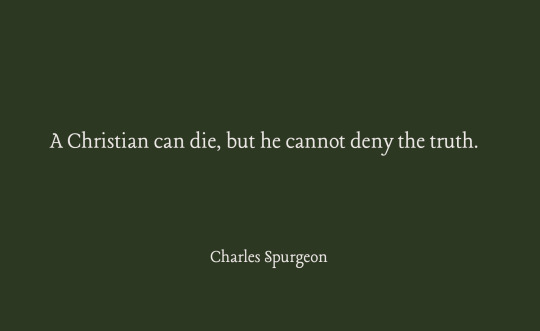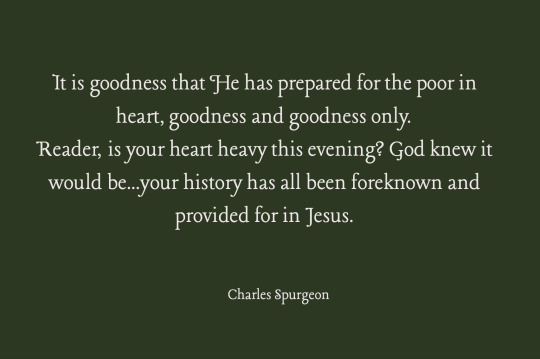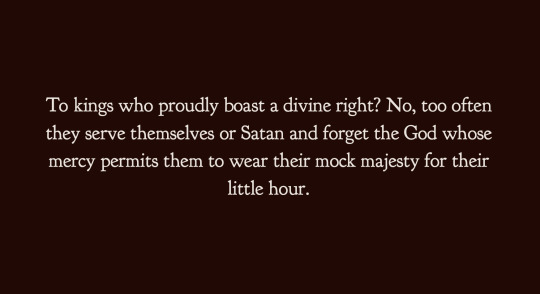Text






Landscape around Estany de la Fontviva, a glacial lake in the Pyrenee mountains, Northern Catalonia.
Photos by nicolas.bicorne.photos on Instagram.
2K notes
·
View notes
Text
they laced this bread with olive oil and sundried tomatoes
45K notes
·
View notes
Text

Ashenbank woods near Cobham, England by Simon Bolton
8K notes
·
View notes
Text
Can't stop thinking about the fact that we serve a God who is powerful enough to speak the universe into existence, but He's also intentional and personal enough to mold mankind with His hands and breath His life into us...
645 notes
·
View notes
Text
I love you moss I love you mushrooms I love you morning dew I love you trees I love you rain I love you crows I love you crunchy leaves I love you autumn I love you nature
13K notes
·
View notes
Text

Truth must enter into the soul, penetrate and saturate it, or else it is of no value. Doctrines held as a matter of creed are like bread in the hand, which ministers no nourishment to the frame. But doctrine accepted by the heart is as digested food, which, by assimilation, sustains and builds up the body.
When, therefore, the truth is kindled within, its brightness soon shines forth in the outward life and conversation. It is said that the food of certain worms colors the cocoons of silk that they spin. In the same way, the nutriment on which a man's inward nature lives gives a tinge to every word and deed proceeding from him. We may judge the secrets of the soul by their manifestation in the man's conversation.
Charles Spurgeon, 1865
30 notes
·
View notes
Text

Thou, O God, hast prepared of thy goodness for the poor.–Psalm 68:10
All God's gifts are prepared gifts laid up in store for needs that are foreseen. God anticipates our needs. Out of the fullness that He has treasured up in Christ Jesus, He provides of His goodness for the poor. You may trust Him for all the necessities that can occur, for He has infallibly foreknown every one of them. He can say of us in all conditions, "I know that you would be in this situation." A man makes a journey across the desert, and when he has gone a day's distance and stops to rest, he discovers that he needs many comforts and necessaries that he has not brought in his luggage. "Ah!" says he, "I did not foresee this: if I had to take this journey again, I would bring things with me that are necessary for my comfort." But God has noticed with His all-seeing eyes all the requirements of His poor, wandering children; and when those needs occur, He has supplies ready. It is goodness that He has prepared for the poor in heart, goodness and goodness only.
"My grace is sufficient for thee" (2 Cor. 12:9). "As thy days, so shall thy strength be" (Deut. 33:25). Reader, is your heart heavy this evening? God knew it would be. The comfort that your heart needs is treasured in the sweet assurance of the text. You are poor and needy, but He has thought about you. Do you feel that you never were so consciously vile as you are now? Behold, the crimson fountain is open still, with all its former effectiveness to wash away your sin away. You will never come into such a position that Christ cannot help you. No trouble will ever arrive in your spiritual affairs in which Jesus Christ will not be equal to the emergency, for your history has all been foreknown and provided for in Jesus.
Charles Spurgeon, 1865
38 notes
·
View notes
Text

"If Christ has died for my sins, I cannot trifle with the evil that killed my best friend." -Charles Spurgeon
210 notes
·
View notes
Photo

“The tearful praying Christian, whose distress prevent his words, will be clearly understood by the Most High.”
- Charles Spurgeon
25 notes
·
View notes
Text
If your goal in life is anything less than the glory of God, you are a worshipper of idols.
-Charles Spurgeon
6 notes
·
View notes
Text
It is a challenging task to keep the carnal mind focused on good thoughts, as it is averse to entertaining them and dwells more comfortably in thoughts of worldly vanities. When engaged in serving God, their minds often drift away like idols with eyes that do not see and ears that do not hear. Even when physically present, their hearts wander elsewhere, preoccupied with countless vanities.”
— Thomas Boston (1676-1732), “Human Nature in its Fourfold State”
3 notes
·
View notes
Text
God is too good to be unkind and He is too wise to be mistaken. And when we cannot trace His hand, we must trust His heart. When you are so weak that you cannot do much more than cry, you coin diamonds with both your eyes. The sweetest prayers God ever hears are the groans and sighs of those who have no hope in anything but his love.
Charles Spurgeon
6 notes
·
View notes
Text

Ye serve the Lord Christ.–Colossians 3:24
To what choice group of officials was this word spoken? To kings who proudly boast a divine right? No, too often they serve themselves or Satan and forget the God whose mercy permits them to wear their mock majesty for their little hour. Did the apostle, then, speak to those so-called "right reverend fathers in God," the bishops or the venerable archdeacons? No, indeed. Paul knew nothing of these mere inventions of man. Not even to pastors and teachers or to the wealthy and esteemed among believers was this word spoken, but to servants, yes, and to slaves.
Among the toiling multitudes–the journeymen, the day laborers, the domestic servants, the drudges of the kitchen–the apostle found, as we find still, some of the Lord's chosen. To them he said, "Whatsoever ye do, do it heartily, as to the Lord, and not unto men; knowing that of the Lord ye shall receive the reward of the inheritance: for ye serve the Lord Christ" (Col. 3:23-24). This saying ennobles the weary routine of earthly employment and shines a halo around the most humble occupations. To wash feet may be servile, but to wash His feet is royal work. To untie shoelaces is a poor job, but to untie the great Master's shoe is a princely privilege. The shop, the barn, and the kitchen become temples when men and women do all to the glory of God! Divine service is not a thing of a few hours and a few places, but all life becomes holiness unto the Lord. Every place and thing may be as consecrated as the tabernacle and its golden candlestick.
Teach me, my God and King, in all things Thee to see;
And what I do in anything to do it as to Thee.
All may of Thee partake, nothing can be so mean,
Which with this tincture, for Thy sake,
Will not grow bright and clean.
A servant with this clause makes drudgery divine;
Who sweets a room, as for Thy laws,
Makes that and the action fine.
Charles Spurgeon, 1865
7 notes
·
View notes




